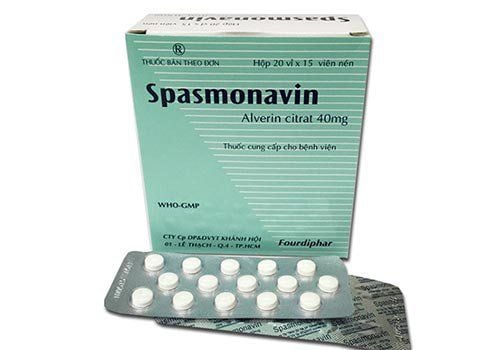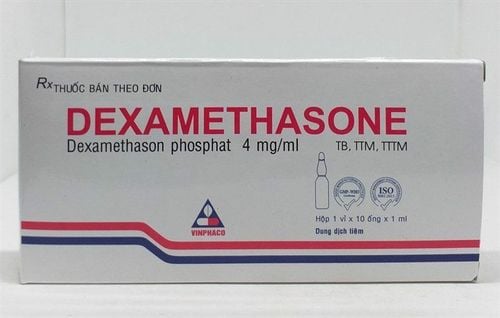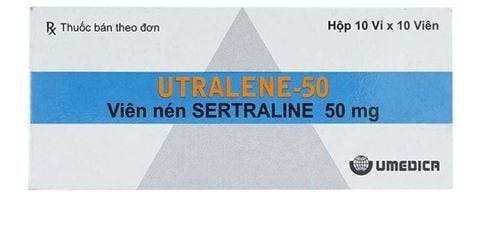This is an automatically translated article.
Hepazol E is used in combination with antiretroviral drugs for HIV-infected adults 1. So how does Hepazol E work? What is the effective dose of the drug and what should be noted when using Hepazol E?
1. What is Hepazol E?
Hepazol E belongs to the group of drugs used to treat parasites, anti-infectives, antivirals, and antifungals. The drug is prepared in the form of film-coated tablets packed in a box of 1 blister x 10 tablets.
Hepazol E contains the main ingredients Tenofovir disoproxil fumarate 300mg and Emtricitabine 200mg. In addition, it contains other excipients such as: Microcrystalline Cellulose, Pure Tale, Starch Na Glycollat, Corn Starch, Dibasic Calcium Phosphate, Lactose, Povidone K-30, Polysorbate 80, Magnesium Stearate, Colloidal Anhydrous Silica , Sodium Lauryl Sulphate, Sodium Croscarmellose, Titanium Dioxide, Indigo Carmine.
2. What are the effects of Hepazol E - uses and indications?
Hepazol E is used in combination with antiretroviral drugs for patients infected with HIV-1.
Confirmation of the benefit of the combination emtricitabine and tenofovir disoproxil fumarate in antiretroviral therapy is based primarily on studies performed in previously untreated patients.
3. Dosage - How to use Hepazol E
Patients should start taking medicine as prescribed by a doctor or pharmacist experienced in the treatment of HIV infection. If the patient has difficulty swallowing, the combined Hepazol E tablets can be dispersed in about 100ml of water or orange/grape juice and taken immediately after mixing.
Dosage of Hepazol E is as follows:
Adults:
The recommended dose is one Hepazol E tablet, taken once a day. To optimize the absorption of tenofovir, Hepazol E tablets should be taken with food. Even small amounts of food increase the absorption of tenofovir from the combination tablet. When it is necessary to discontinue treatment with either component of the combined Hepazol E tablet or when a dose adjustment is required, preparations containing each component of emtricitabine and tenofovir disoproxil fumarate should be used separately. Children and Adolescents:
Safety and efficacy have not been established in patients under 18 years of age. Therefore, the combination Hepazol E tablets should not be given to children and adolescents. Elderly:
There are insufficient data to make dosing recommendations for patients over 65 years of age. However, it is not necessary to adjust the recommended adult dose of Hepazol E unless there is evidence of renal impairment. Hepazol E overdose cases and treatment:
There have been no reports of symptoms when taking Hepazol E drug overdose. However, if overdose or poisoning occurs, the patient should be monitored for signs of toxicity. Where necessary, basic supportive measures should be used. Hemodialysis can separate about 54% of Tenofovir to exclusion. With a single 300 mg dose, approximately 10% of a tenofovir disoproxil fumarate dose was eliminated during a 4-hour hemodialysis session.
4. Contraindications when using Hepazol E
Hepazol E drug should not be used in cases where the patient is hypersensitive or allergic to Emtricitabine, Tenofovir disoproxil fumarate, Tenofovir or any of its ingredients.
5. Hepazol E . drug interactions
Hepazol E drugs combined with some of the following drugs may have drug interactions such as:
Drugs affected or metabolised by liver enzymes CYP450, CYP isomers 3A4, 2D6, 2C9, 2E1, 1A . The drugs Acyclovir, Ganciclovir, Cidofovir, Valacyclovir, Valganciclovir, ... when used together with Hepazol E reduce renal function or compete for renal tubular secretion, increasing plasma concentrations of tenofovir or other drugs. HIV protease inhibitors such as Amprenavir, Atazanavir, Indinavir, Ritonavir, Saquinavir. Non-nucleoside reverse transcriptase inhibitors such as Nevirapine, Delavirdin, Efavirenz. Nucleoside reverse transcriptase inhibitors such as Abacavir, Zalcitabine, Didanosin, Emtricitabine, Stavudin, Zidovudin, Lamivudin. Oral contraceptives containing Ethinyl estradiol or Norgestimate. The above is not a complete list of Hepazol E drug interactions. To be safe, please list all drug lines (prescription, non-prescription, dietary supplements, other pharmaceuticals, vitamins, etc.) ,..) are using and the disease they are having, let the doctor or pharmacist know.
6. What side effects does Hepazol E cause?
During the use of Hepazol E, patients may experience some unwanted side effects such as:
The most common effects such as diarrhea, vomiting/nausea, abdominal pain, flatulence, indigestion, anorexia. Elevated serum amylase levels and pancreatitis. Hypophosphataemia Skin rash Peripheral neuropathy, dizziness, headache, insomnia, asthenia, depression, sweating and myalgia. Increased liver enzymes, hyperglycemia, increased blood triglyceride levels and neutrophil deficiency. Renal failure, acute renal failure and effects on the proximal tubule (Fanconi syndrome) Lactic acidosis Severe hepatomegaly Fatty Inform your doctor, pharmacist of unwanted effects encountered when using Hepazol medicine E.
7. Precautions when using Hepazol E
The drug can cause adipose tissue proliferation through redistribution or accumulation of body fat, including peripheral nerve damage, central obesity. Co-administration of tenofovir with lamivudine and efavirenz in HIV-infected patients showed an increase in serum parathyroid hormone levels, a decrease in lumbar spine mineral density, and an increase in the levels of four biological factors. in bone metabolism. Close bone monitoring is required in HIV-infected patients with a history of fracture, or at risk for osteoporosis. Although the effectiveness of calcium and vitamin D supplements has not been proven, supplementation may be beneficial for people with disease.
Pregnant women: There is no information on the use of Hepazol E during pregnancy. It should be used only when the demonstrated benefit outweighs the risk to the fetus.
Lactation: There is no information on the excretion of Hepazol E fumarate in breast milk. Therefore, do not use tenofovir in this case. As a general recommendation, HIV-infected women should not breastfeed to avoid transmitting HIV to a nursing infant.
Above is important information about Hepazol E. If in the process of taking the drug, the patient has any further questions, they can contact the doctor for in-depth advice.
Please dial HOTLINE for more information or register for an appointment HERE. Download MyVinmec app to make appointments faster and to manage your bookings easily.













